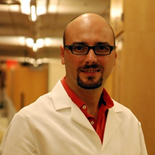Young Scientists Profile: Conversation with İnanç Ortaç
 1. Can you please talk about your background? (How did you chose your major? How did you decide to come to USA?)
1. Can you please talk about your background? (How did you chose your major? How did you decide to come to USA?)
Since I was a child, I have been interested in almost all disciplines of natural sciences and engineering. This led me to a career and research that merges all of them together.
I had a BS degree in Physics in Middle East Technical University. In 2006, I won Fulbright scholarship and came to University of California, San Diego to pursue a PhD in Electrical and Computer Engineering. I wanted to be an engineer focusing on biological and medical applications. San Diego together with its vicinity is one of the fastest growing biotech hubs in the United States and also in the world. UC San Diego is the heart of this area and has a strong tradition of biotechnological research. That was the main reason for me to choose UC San Diego for my PhD studies.
Although, it sounds odd for a person with my background to work on cancer therapy, especially on drug development, I believe, in fact, it is a perfect match. During my research, I have seen that my background and my knowledge has given me the perspective that was needed in the field. Cancer is not a topic only for medical doctors anymore. It is one of the most complicated problems we have ever faced and requires collaboration of researchers from all different backgrounds. I think we are getting closer and closer to win our fight against cancer with recent developments in cancer nanotechnology that merges molecular biology, physics, chemistry, material science and engineering altogether.
2. What is the driving force behind your success at such young ages?
Like most scientists, I have been driven by the curiosity. In early ages, this curiosity led me to ask questions. If the answers were not easy to reach, it directed me to do further research. However, learning did not reduce the number of questions, on the contrary, it increased them. As a result, I have found myself working for a science degree still seeking for answers. Throughout this journey, my family has supported and encouraged me in every possible way to achieve my dreams. Also, my smartest move was to get married to my wife before I came to US :). I cannot image how I would come so far without her.
3. What would you like to say to the Young Turkish Scientists?
Scientific research is often frustrating. Most directions you take don’t lead to an answer. I think persistence is one of the most vital attributes of a scientist. But, in order to be persistent, one needs to work on a problem that is worth pursuing so that a personal attachment can be formed in between. I wanted to work on something that will have a great impact in people’s lives if I achieve my goal. I was lucky to work in environments where curiosity is encouraged and I found freedom to pursue whatever I am curious about. So, I can advise others to seek those environments that provide them with this freedom.
4. What would you like to achieve in the near future?
I’m working towards receiving my PhD degree. Right now, I’m focused on translating this research from laboratory to clinic. To achieve this, we have started company called DevaCell Inc. around the technology on cancer therapy that I’m working on. Currently, we are in the preclinical stage applying this technology on pancreatic and colon cancer as well as acute lymphoblastic leukemia and metastatic breast cancer. We are planning to start clinical trials in a few years. I’ll be serving as the chief scientific officer at DevaCell Inc. after I graduate. I also have other projects in different fields that I’m planning to realize in coming days.